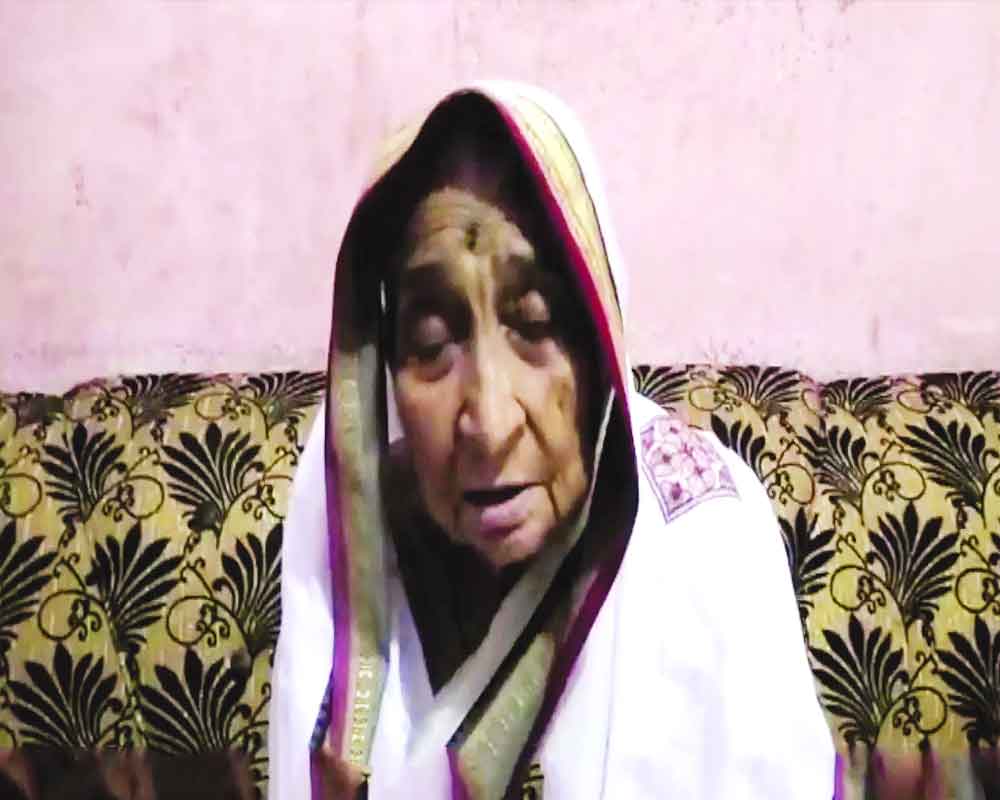Many people laid their lives for the independence, some are known while others still remain obscure. Hausabai is one of the those.
She was writhing in pain, pleading for him to stop but her cries went unheard. Despite this happening in front of the police station in Bhavani Nagar in Sangli, Maharashtra, the only two policemen present there did nothing to stop the violence against Hausabai Patil. Suddenly, Hausabai’s inebriated husband picked up a large stone and threatened to smash her head. When the two policemen realised that they would be hauled up if a woman was murdered in front of their station, they rushed out to intervene.
After stopping the husband from carrying out his threat, the two policemen tried to counsel him. They asked him to take his wife home and treat her with respect. But Hausabai refused to go with him. She asked her brother, who was also present, to take her back with him as she could not stand the beatings anymore. But he, too, refused. The policemen were In a quandary. Finally, after a couple of hours of counseling, much to their relief, the couple agreed to return to their village.
But this relief was to be short-lived. When the two policemen returned to their station, they were in for a shock. All the rifles and ammunition had been stolen. They realised that the whole drama had been a ploy to draw them out of the station so that the firearms could be looted.
When Hausabai participated in this act in 1943 with her comrades of the Toofan Sena, she was just 17. The Sena was the armed wing of the provisional government of Satara that had declared Independence from British rule in 1943. But neither her age nor the fact that she had a young baby, who she left behind with her family, deterred Hausabai from being an active part of the freedom struggle. Impressed with her commitment and love for the country, Sena leaders gave her several important responsibilities including intelligence gathering and being a part of a jailbreak in Panjim Central jail in Goa where their comrades were imprisoned. Hausabai had to float on a small box in the darkness of night along the Mandovi River to carry out this mission.
These were just some of many acts of bravery of Hausabai and the countless freedom fighters who put their lives on the line and undertook to free the country. Sadly, she is also one of the many who remained unrecognised as a freedom fighter for decades.
Hausabai, in fact, was lucky she received recognition in 1992 at the age of 75. There are very many others who died, unknown and unrecognised by the government. It is the stories of these valiant women, men, and children that journalist P Sainath has chronicled in his new book. Titled the ‘Last Heroes- Foot soldiers of Indian Freedom’, this well-researched book narrates the heartwarming and heartbreaking stories of Adivasis, Dalits, OBCs, Brahmins, Muslims, Sikhs and Hindus who were united in their quest for India’s freedom despite speaking different languages and belonging to different castes and religions.
The 16 stories in this extremely interesting and informative book published by Penguin are based on extensive interviews with these unknown freedom fighters living in Maharashtra, Odisha, Tamil Nadu, Telangana, West Bengal, Punjab, Karnataka, and Rajasthan. These were carried out by Sainath over the past many years. Some of the later ones had to be done with their descendants, their relatives, the people in their villages, and historians of that era as the freedom fighters had passed away. These were also validated by the records and books of the events in which these revolutionaries were involved in.
Ironically, a majority of them do not feature among the 23,000 names in the central government’s list as freedom fighters since most of them had no official ‘proof’ required to be recognised. As a result, some of them who are still alive as well as dependents of others, remain excluded from the pension.
This is because under the 1980 Swatantrata Sainik Samman scheme, only those persons who ‘suffered’ imprisoned for a minimum of six months in mainland jails, are eligible for pension. Consequently, those who escaped imprisonment or spent less than six months in jail became ineligible. So patriots like Demani Dei Sahar Salian, the 16-year-old Adivasi girl who led a fiery counterattack with 40 Adivasi young women only with lathis (sticks) on a British police force raiding her village in Odisha, and won, remained unrecognised as a freedom fighter by the government because she did not go to jail. This act of defiance at the risk of their lives was not considered good enough for recognition.
Numerous others have fallen through the cracks as they did not have the required copies of their arrest order, declaration of being a proclaimed offender, or orders of the property being attached, confiscated, or sold as proof of their involvement in the freedom struggle.
As India celebrates its 75th year of Independence, surely it is time to reflect on why all the ordinary people ‘who went into battle with simple faith, and with no thought of appreciation’ have been forgotten.
(The writer is a senior journalist. The views expressed are personal.)


























